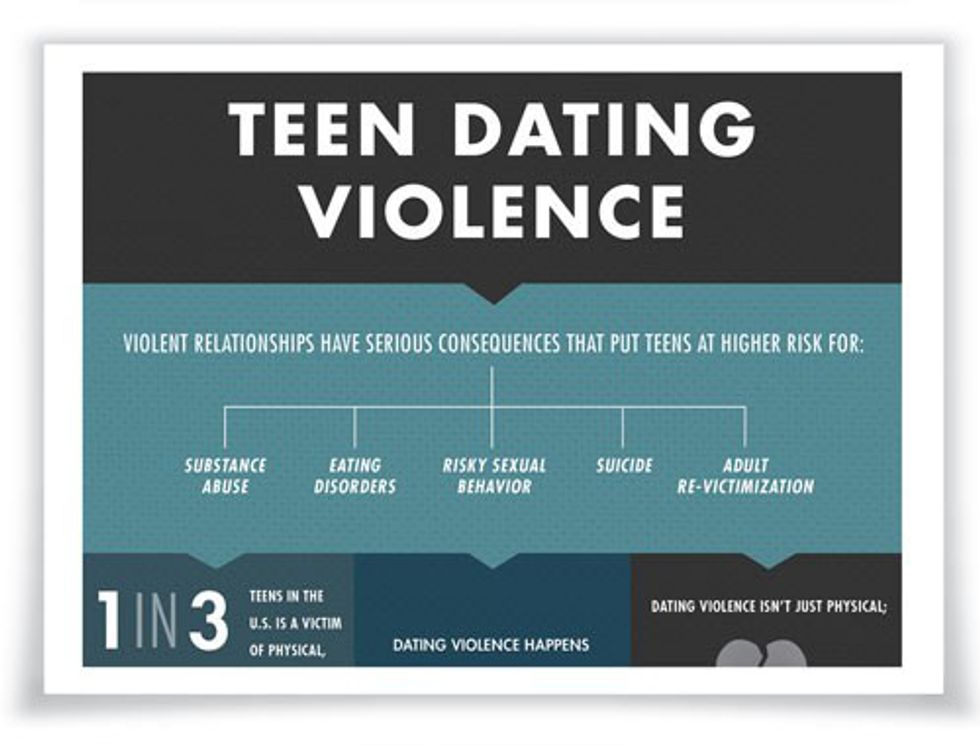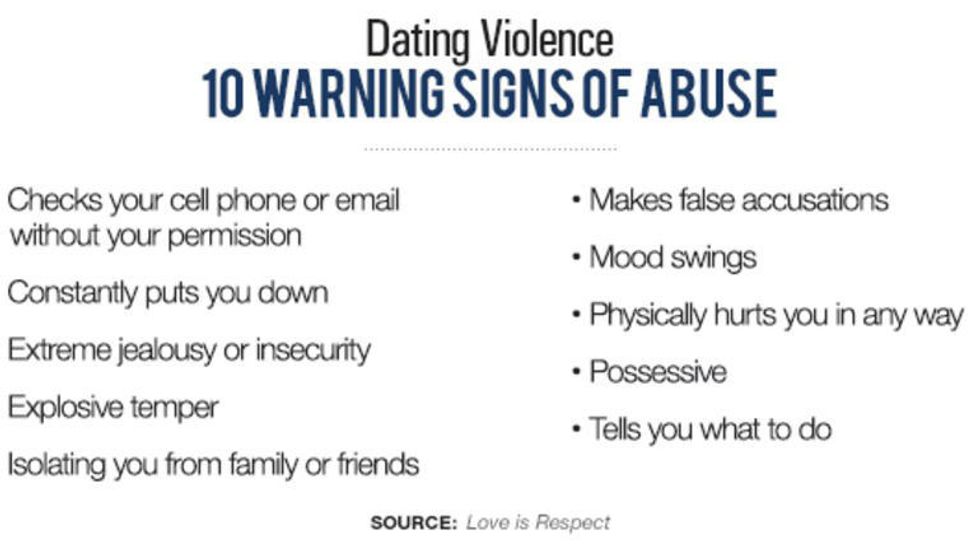After growing up in a world where being taunted and, literally, hit on was brushed off as signs of affection, it can be difficult to bridge the gap between what is and isn't acceptable behavior in a relationship. Considering over half of parents leave their children to their own devices on such a sensitive topic, February is Teen Dating Violence Awareness Month, separate from Domestic Violence Awareness in October. It was established to bring light to the issue of red flag behavior in high school and college relationships. The PSA below depicts various forms of dating violence and, while not graphic, may be triggering for some.
While relationships at this age may not be taken as seriously, abuse is always serious, no matter the form it takes. A partner doesn't have to be physically abusive, though this is the kind most often portrayed. An abuser can take control of a relationship emotionally, sexually, financially and digitally. In fact, dating violence doesn't require both parties to consent to a relationship, stalking can be counted as a form of abuse. While every case of abuse may look different, they are all equally harmful to the victim. You can go here to find out more details on the kinds of abuse and your options if you're being abused.
Because abuse comes in so many forms, it may be unclear what is and isn't abuse. Love Is Respect, an organization that aims to end dating violence, provided a list of warning signs. For more information on the warning signs and how these relationships work you can visit their site, which I've already linked in the above paragraph.
For someone in an abusive relationship, it is important for them to reach out to someone they trust. It's equally important that whoever they reach out to knows how to react. The most important thing to remember if someone opens up to you is to listen. Telling you is a big step and they not be ready to take action in any other way. Victims of abuse can be scared and unsure of themselves and may even doubt that what they're going through is really abuse. Just being there can help validate their situation and give them the strength to leave. This may take a long time and it may not ever happen, but it's important that you are there for them.
Abuse can come in various forms and degrees, but it is never acceptable. If your partner exhibits any of these warning signs, or if you know someone in a relationship like this, you don't have to wait for it to get worse. If you think you may be in an unhealthy relationship please don't hesitate to call the Love Is Respect hotline at 1-886-331-9474 or text "loveis" to 22522.




















